For many, the fear of the unknown is what keeps them from lifting weights. How heavy should weights be to start? What kind of moves should I be performing? How do I know if my form is correct? Is that guy with the massive biceps judging me? The good news is that you can get an effective strength workout, right in the comfort of your own home, with an audience of just yourself. Creating a balanced routine that targets all of your major muscle groups is easier than you might think.
The American College of Sports Medicine recommends two to three sessions of strength training on non-consecutive days each week. Each exercise should be performed for one to three sets, with eight to 12 repetitions per set. The last rep in the set should be the last one you're able to perform with proper form. If you can easily keep going past 12 repetitions, the weight is too light. If you can't get anywhere close to eight before sacrificing good form, the weight is too heavy, so you always want to be somewhere in between. Be sure to do a three to five minute warm-up before starting any strength routine.
The exercises below are designed to give you a total body workout, targeting each of the major muscle groups. They are all simple to perform, requiring just a set of dumbbells and your own bodyweight. You can go through the list in order, or rotate by doing one lower-body exercise followed by one upper-body exercise, for example.
Lower Body
Dumbbell Squats: The great thing about squats is that they target multiple muscle groups at once, including your quadriceps. Strengthening your quads will improve your performance in a variety of cardio activities, including walking, running, biking and more. Be sure to lean from the waist like you're about to sit in a chair and don't let your knees come out past your toes.
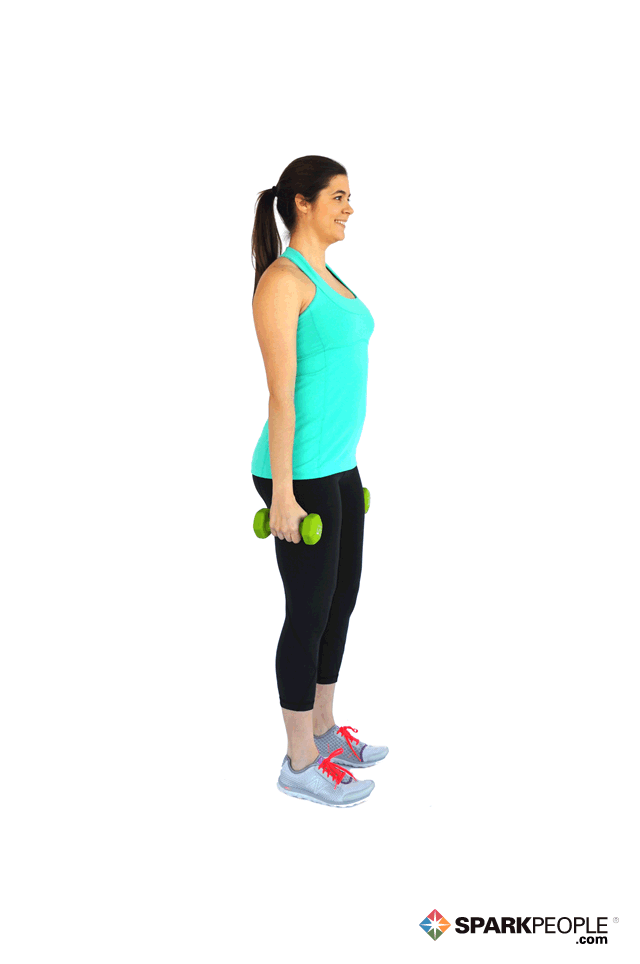
Lying Leg Curls: Strong hamstrings provide stability to the knee joint, reducing your risk of injury. Your body relies on your hamstrings for many daily activities, such as getting into and out of a chair or walking around the grocery store. Lead with the heels and keep your feet flexed during each curl.
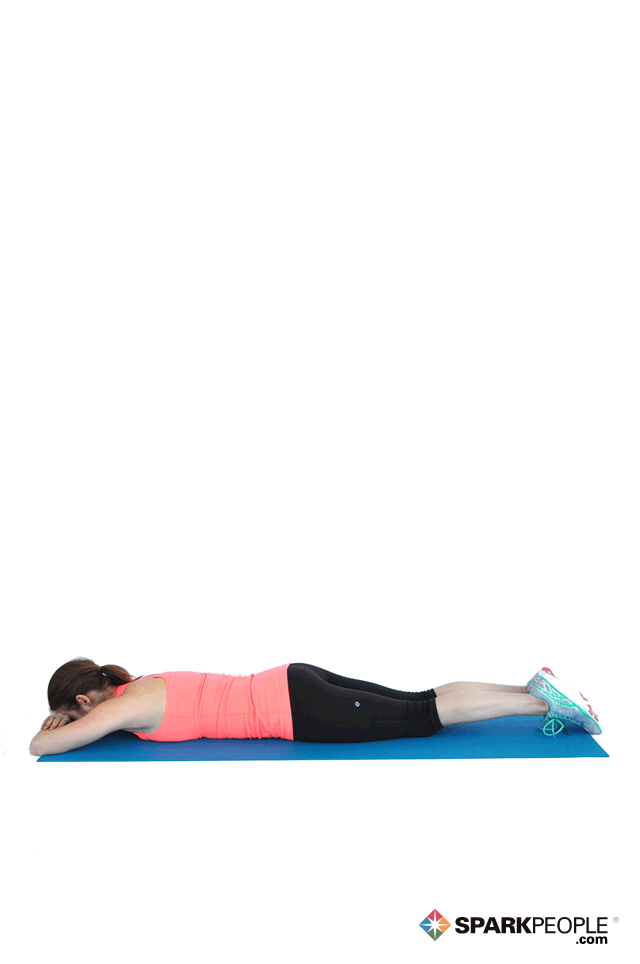
Bridges: The gluteus maximus is the largest muscle in the body. Your glutes keep you standing in an upright position and provide power and stability during a wide variety of activities. Weak glutes can cause your body to fall out of proper alignment, increasing your risk of injury. For this exercise, try not to let your backside touch the ground in between repetitions.
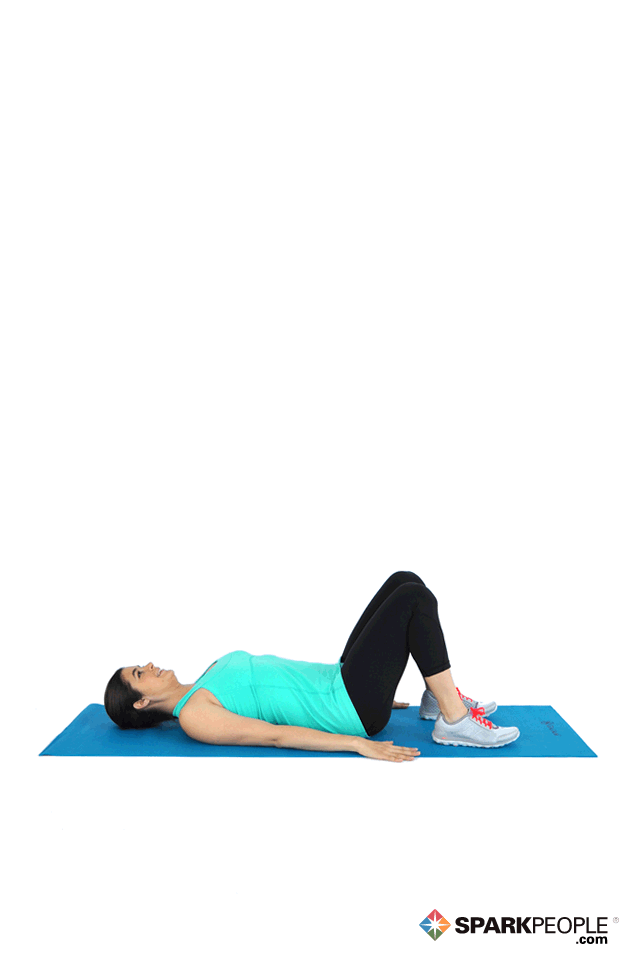
Calf Raises: You can do this exercise with a chair (as shown) or on the edge of a step. When you climb stairs or even walk around your house, your calf muscles are engaged and help perform the movement. Keep the heels off of the ground in between repetitions. Do one leg at a time for an added challenge.
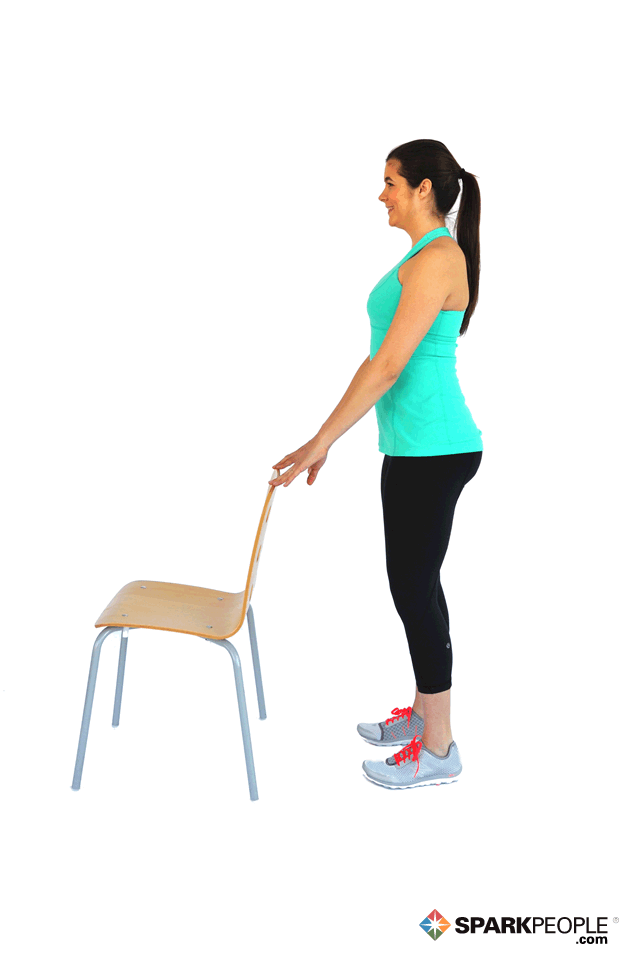
Upper Body
Chest Press: When you push a lawnmower, pull grocery bags out of the car or push yourself up off the floor, your chest muscles are the ones providing the power. Keep your back flat with the spine in a neutral position throughout the entire set.
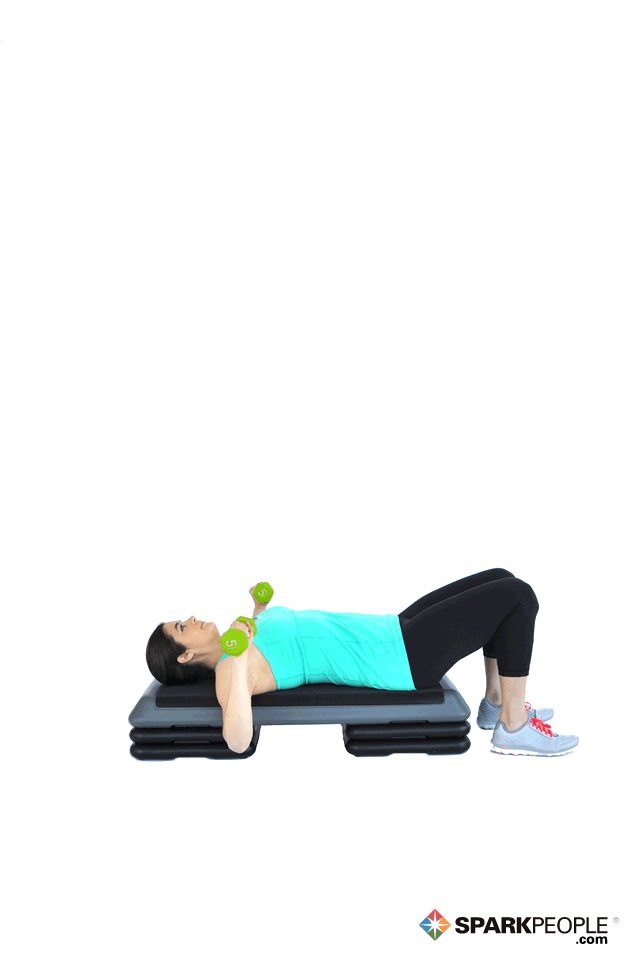
One-Arm Dumbbell Rows: A strong back helps provide good posture, which makes you look and feel your best. The back connects the upper- and lower-body muscles, and is essential for most daily movement. Remember to squeeze at the top of the contraction, keeping the spine in a neutral position.
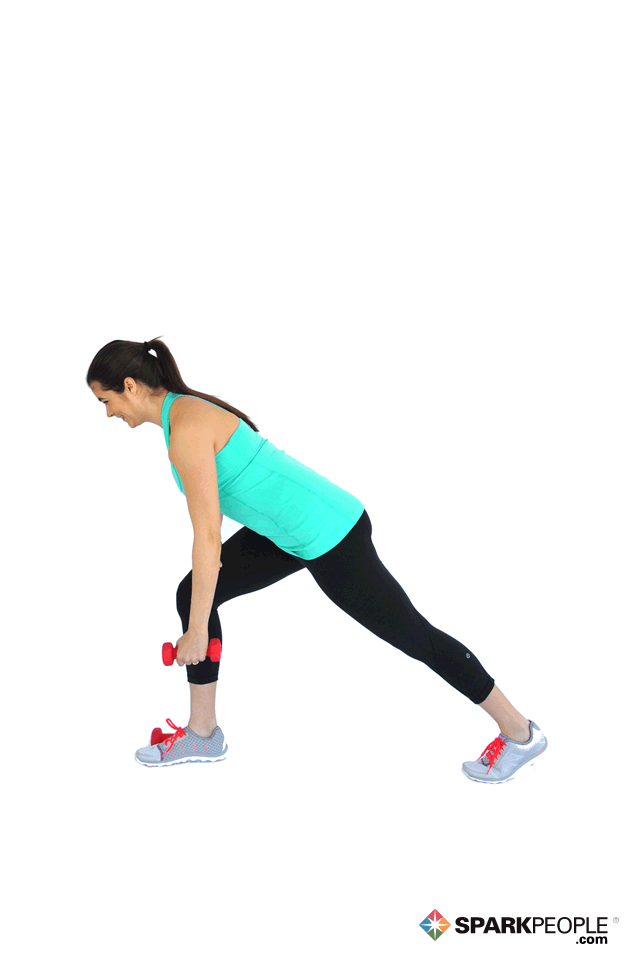
Dumbbell Lateral Raises: Strong shoulders provide the power for overhead movements, such as putting a box on the top shelf of the garage or hitting a ball over the net. The shoulder is potentially the most unstable joint in the body, so strength training is especially important to prevent injury. Stand tall and keep the movement controlled—no swinging or letting momentum take over.
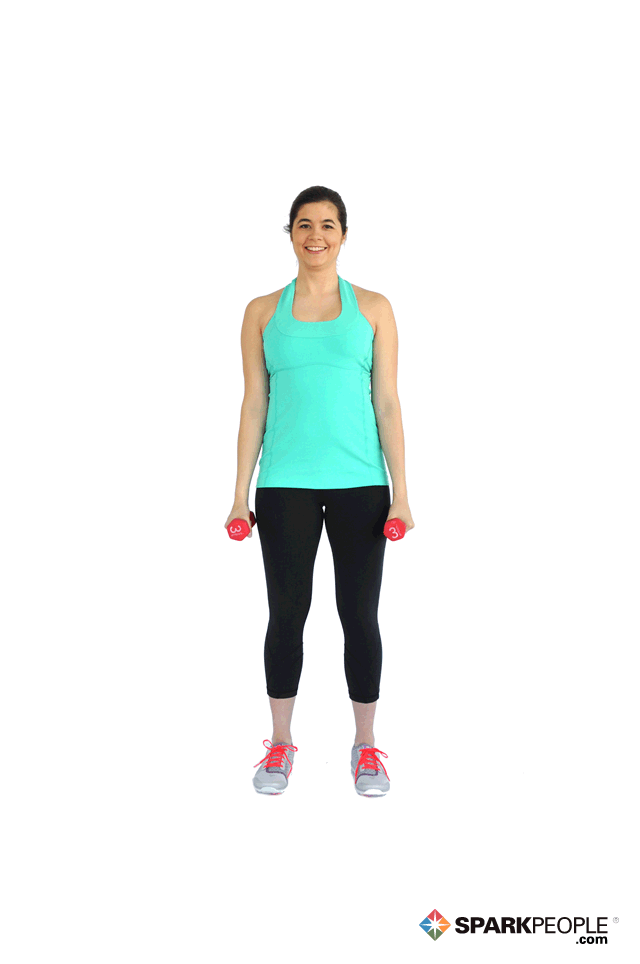
Dumbbell Hammer Curls: When you lift something off of the floor, your biceps assist in the movement. Strong and defined biceps also add to the look of your upper arm, so you can "make a muscle" with pride while looking awesome in those tank tops. Keep elbows in close at your sides, palms facing inward while standing tall.
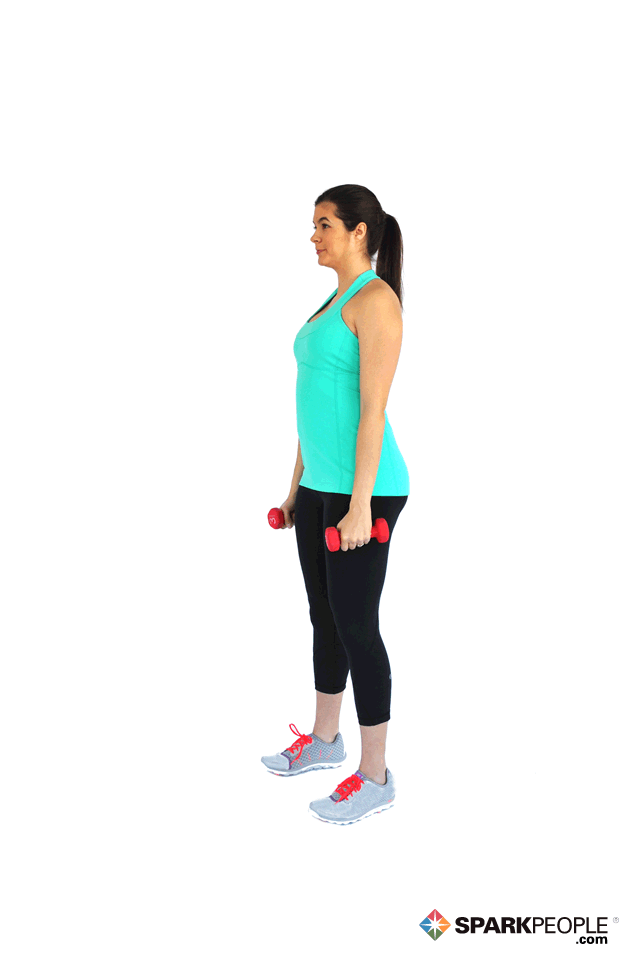
Core
Planks: The great thing about planks is that they work your abdominal muscles in the same way they are used in everyday life—as stabilizers in every movement. For this reason, planks are the perfect core exercise. It is essential that you pull your abs in and keep your back flat with your head, back and lower body all in line.
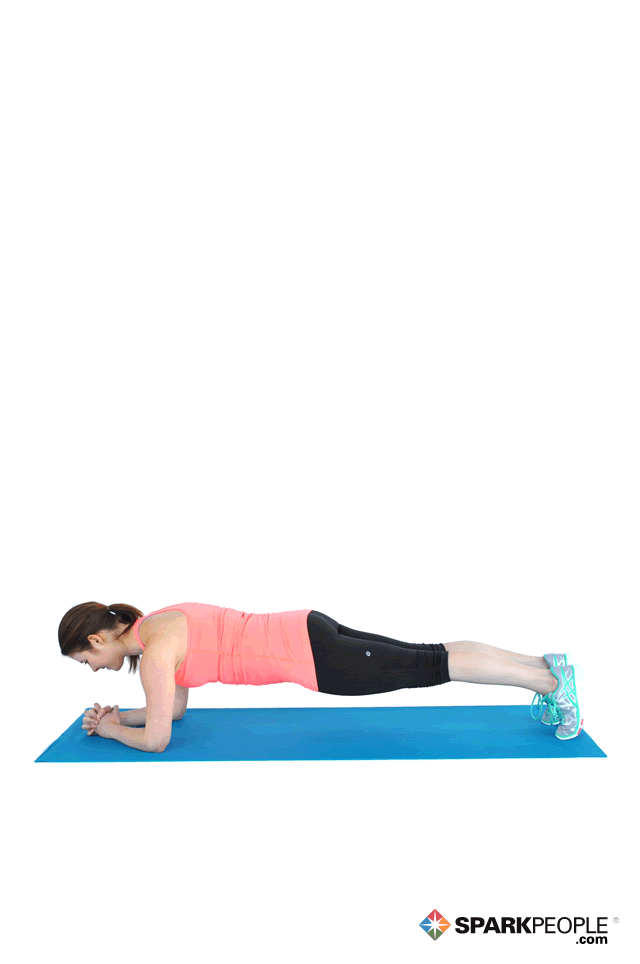
Swimming: A balanced core includes not only exercises for your abs, but your lower back as well. Low-back exercises can help reduce back pain, reduce the risk of injury and help stabilize and support your spine. Don't let your arms or legs touch the floor until the set is complete.

A well-rounded strength training routine includes exercises that target not only the muscles you see when you look in the mirror, but also those muscles you can't see. It's important for opposing muscle groups to have balance to prevent injury and improper body alignment. For instance, if you regularly do exercises for your quadriceps but ignore your hamstrings, you could be compromising your posture and gait, while greatly increasing your risk of a hamstring injury. The best strength training focuses on your entire body, not just specific parts, so be careful to treat every muscle group with the same TLC.
When you're ready to banish those nightmares for good, start with this routine and after a few weeks, you'll feel like a stronger, more confident version of yourself.



